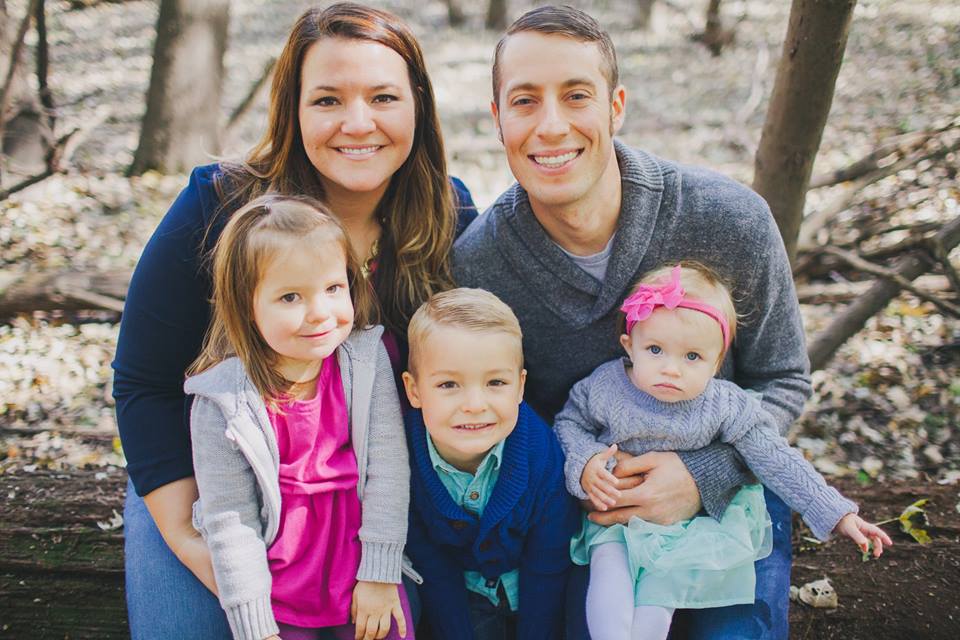
Recently I had a chance to chat with Leah Wenger, planter of the Vineyard of Mahomet, a campus of the Central Illinois Vineyard. I was looking forward to talking with her because we are both women who have been pastors of multisite churches. But in the end, I was most captivated by her thoughts about the basics of church planting—loving our neighbors.
Leah moved to Mahomet, Illinois with her husband and kids in 2013 and started gathering people. They began holding public services on Sunday nights since last September when they found a suitable space to meet—sharing a building with a FourSquare church.
Before planting, Leah oversaw the youth ministries of all the Central Illinois Vineyard campuses. When God started putting it on her heart to plant in Mahomet, Leah said “I had never wanted to be a pastor, and I enjoyed what I was already doing, but we felt like it was God. Our house sold in 3 days and we moved. It’s just been a great, hard, fantastic journey.”
Here’s a little taste of our conversation and what church planting looks like a year or two into the process:
So, Leah, can you tell me a little bit about the town of Mahomet and your experience planting there so far?
“Church is important. But church is playdates. Church is cookouts. We are the church.”
Yeah. Mahomet is a very religious, conservative town, and everything about us is kind of backwards to this community: I’m a woman, we meet at night. But it’s so what God is doing. And to me, there’s no right way to do church. You just go be Jesus to people. Jesus was backwards to the religious community. He didn’t do anything the way that they did. But that’s the kingdom.
I really think that the way we look at church in our culture is changing, and it’s going to keep changing—like the way we do our weekly gatherings will look different. But to me, we just do life with people. It is also really important to come together; church is important. But church is playdates. Church is cookouts. We are the church.
 You mention being a woman as atypical in your community. Have you experienced much resistance to you leading as a woman?
You mention being a woman as atypical in your community. Have you experienced much resistance to you leading as a woman?
Well, when we first started planting in Mahomet, I had someone who had been in the church for 25
years tell me that he was a little worried, because Mahomet is a small conservative town. He said “I don’t know about a woman leading.” About a month ago I checked in with him to see how he thought it was going, and he said “I never even think about it.” And I thought, “we’ve arrived.”
So I don’t think about myself as a woman leading. I just lead. And I love to empower women. But I think some of it also depends on your leaders. I work with Happy Leman, and he loves empowering women. But I also try to be very aware, when I think of who I’m bringing up front, of ages and sexes. I want to bring diversity into what we do. And I love to find ways to represent who is actually in the church. Like I think “Oh, Paula has been part of the church for 30 years. I’d love for her to do the offering announcement today.”
I love that. So what else do you do to raise up a diverse group of leaders?
Sure. When I meet with the people overseeing all our different areas, I always press down the pedal with them of recruiting people who are different than they are. And we are still a small, mostly white town. That was one of my biggest hangups about coming here. But God told us, “it will be a diverse church.” And it’s happening. Different kinds of people are starting to show up. We are just very intentional about raising up all kinds, because we want a whole team.
So what sticks out the most about this experience so far?
If there’s one thing that we’ve done since we’ve been here, it’s love our neighbors. We’ve done this memorial day picnic the last three years, and we have 65 of our neighbors and their kids come over for dinner. One woman, she’s unchurched, but she’s talking about the party and how she was telling her husband that we’re going to a cookout, and everyone can BYOB. And her husband said, kind of incredulously, “We’re going to bring beer to a priest’s house?!” But she said, “Leah’s not like other priests. She’s different. Leah’s like the least judgmental person I’ve ever met.” For her to have those reflections, that’s Jesus. It’s not Leah.
And so We’ve had the most success just loving our neighbors. Some of them come to our stuff. Some don’t. But we’re still pastoring them. When their kids get hurt we pray for healing. One just went through cancer and we were the ones organizing meals and praying for them. We’re leading the charge on loving people.
Stay tuned for more conversations with church planters here on the blog in coming months!










